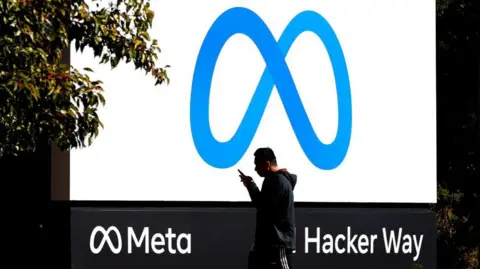Wedding Dress Designer's Traumatizing Experience with Hacked Instagram Account

Catherine Deane, a wedding dress designer based in the UK, has recently shared her harrowing experience of having her companys Instagram account hacked, describing the ordeal as "almost traumatizing." For Deane, her Instagram presence is not just important; it is vital for her business, which sells wedding dresses online. With her primary market being in the United States, the platform serves as a critical channel for reaching potential customers and showcasing her creations.
Having cultivated a following of 59,000 followers on Instagram, Ms. Deane's business relies heavily on the platform. However, a few years ago, the account fell victim to a security breach when a member of her social media team received a fraudulent message claiming that the business had been selected for verification, a coveted blue badge that signifies authenticity on Instagram, owned by Meta (the parent company of Facebook). "We were obviously very excited about that," Deane stated, reflecting on the moment that would soon turn into a nightmare.
In a moment of naivety, her employee clicked on a link to what turned out to be a fake Instagram verification form, unwittingly providing their login credentials. Shortly thereafter, the account was taken over by hackers. This incident not only stripped Deane of her hard-earned online presence but also left her feeling helpless and frustrated as she navigated the process of regaining access to her account.
Deane's struggles did not end with the hack. She found herself in a lengthy battle with Meta to recover her account, a process that spanned an agonizing four months. Initially, she submitted an admin dispute form, but the lack of response from Meta left her feeling increasingly desperate. "Its so incredibly frustrating when youre dealing with your account being hacked and there is no one to talk to," she lamented. The absence of a clear communication channel created a sense of isolation during a challenging time.
Eventually, after numerous emails and escalating her concerns, Deane received a notification from Meta indicating that her case had been closed, despite her still being unable to access her Instagram page. The situation changed only when someone within her team managed to get in touch with a contact at Facebook, leading to daily follow-ups for four months until they finally regained access to the account. "I think they just needed to get us off their backs and they reinstated the account," she remarked with a blend of relief and frustration.
This is not an isolated incident. Jonas Borchgrevink, the CEO of the US-based cybersecurity firm Hacked.com, highlighted that Ms. Deane's case is just one among many. "It is a massive problem," he noted, revealing that his firm assists around 10 to 15 clients weekly in recovering their hacked business accounts. However, he emphasized that many business owners are unaware of available resources and the lengthy recovery process can take up to six months.
Despite requests for data regarding the scale of account hacks from Meta, the company declined to provide specific numbers. In a statement, they underscored their commitment to user safety, urging account holders to create strong passwords, enable two-factor authentication, and remain vigilant against suspicious communications.
The motivations behind such hacks can vary, including selling fake products, spreading malware, and blackmailing companies. David Davila, a member of the marketing team at Quantum Windows & Doors, experienced a similar situation when he was locked out of the companys Facebook account after responding to a phishing message disguised as a Meta communication. Subsequently, Davila received a WhatsApp message demanding a ransom of $1,200 to regain access.
Unfortunately, the lack of accessible customer support often leaves victims feeling helpless. Davila, who searched online for a helpline, ended up contacting more scammers due to misleading search results. Thankfully, he was able to unlock the Facebook account just days later.
Experts like Borchgrevink believe that the sheer volume of cases might overwhelm Meta, despite the implementation of various security measures over the years. The situation may worsen as scammers increasingly leverage artificial intelligence to create more convincing phishing messages. They often masquerade as support agents, sending emails that appear legitimate, complete with the Facebook logo, to trick users into providing sensitive information.
In a digital age where personal and business accounts are often intertwined, the risks of hacking are amplified. Scammers frequently target personal accounts first before gaining access to business pages. Once they seize control, they can transfer administrative rights to fake profiles and engage in malicious activities that could further jeopardize the original account.
Deane's experience serves as a stark reminder of the vulnerabilities faced by business owners in the online space and the importance of robust security measures.
























